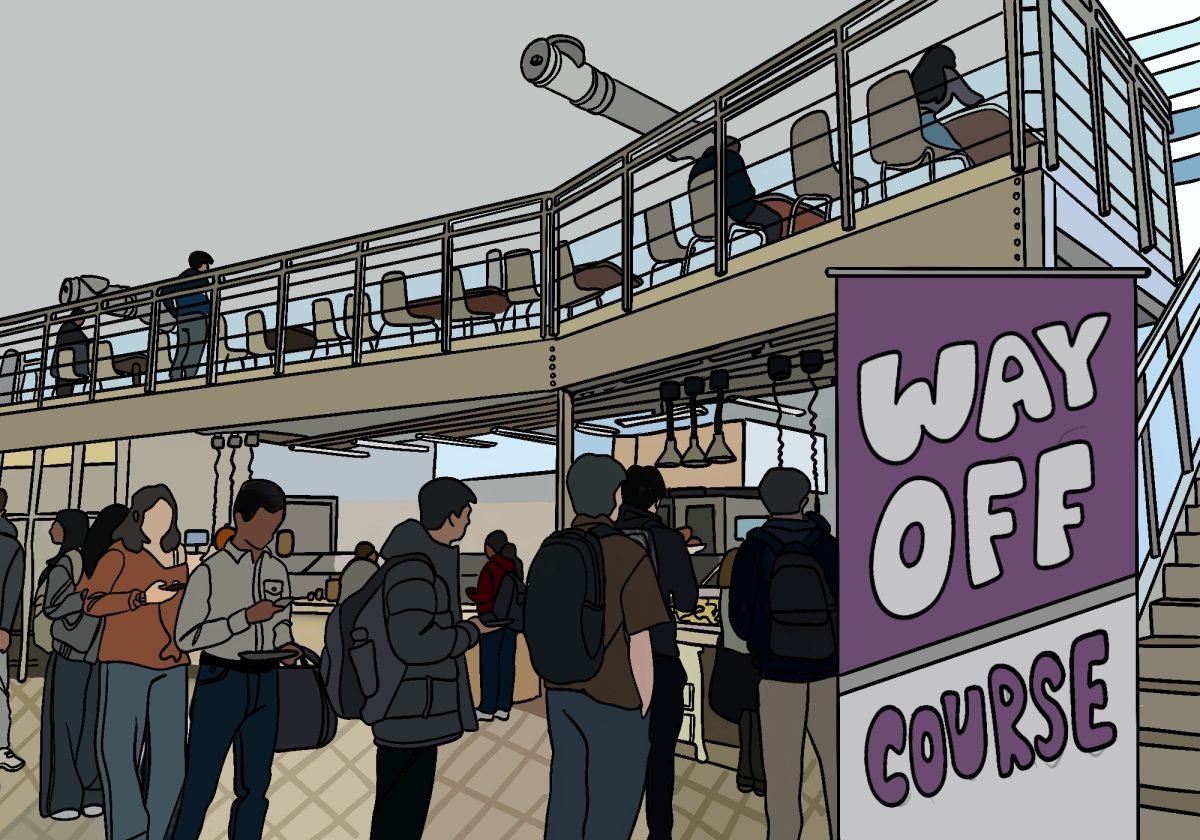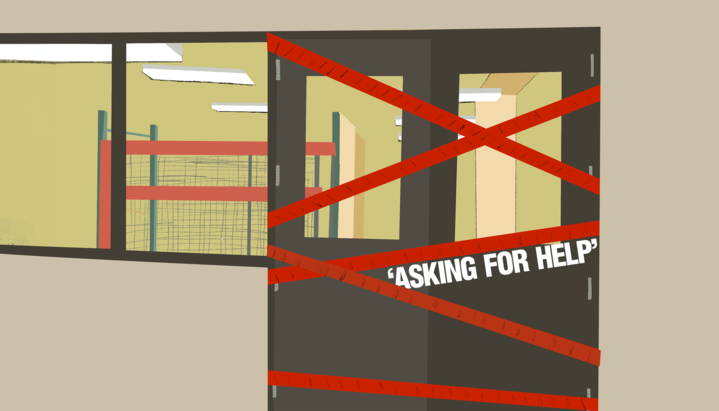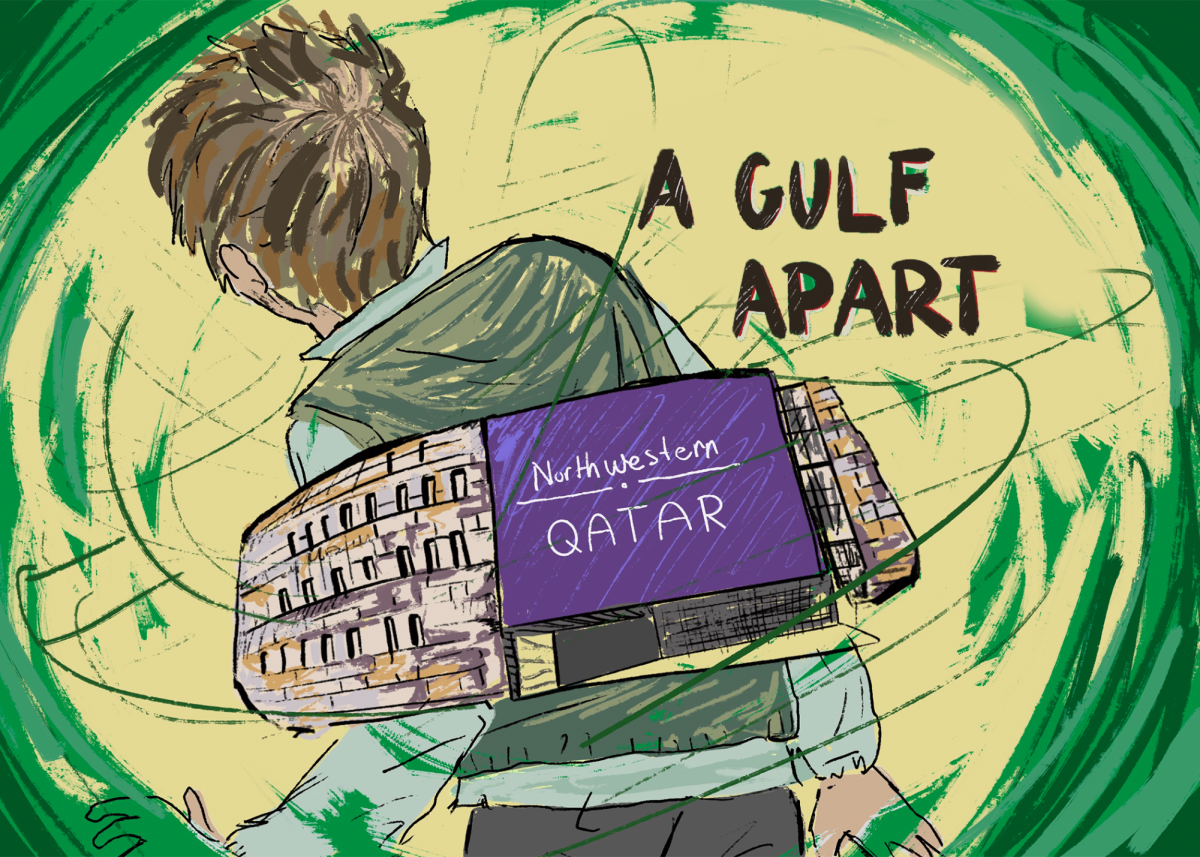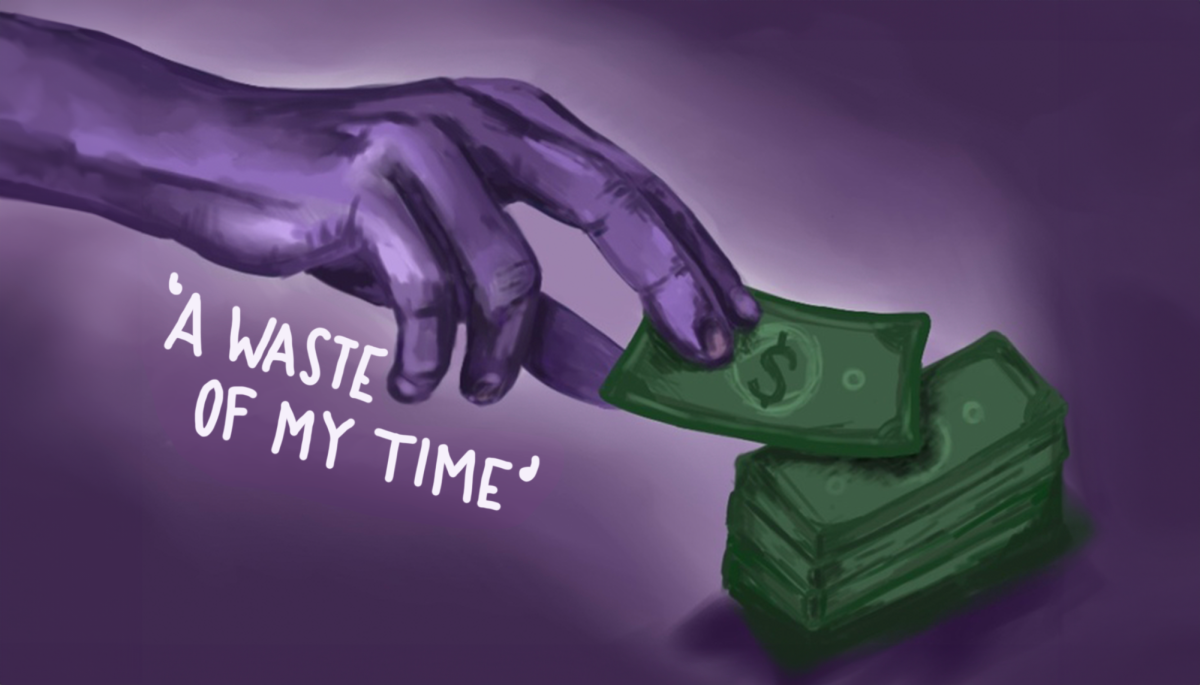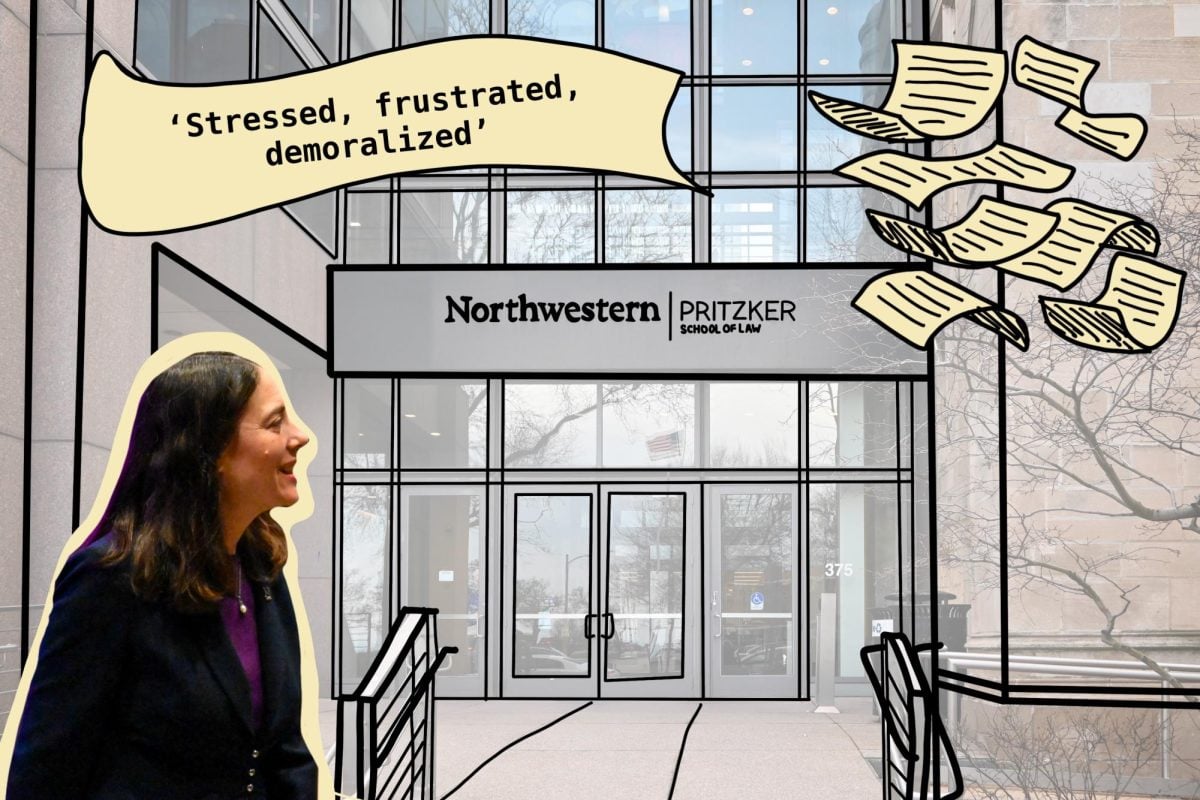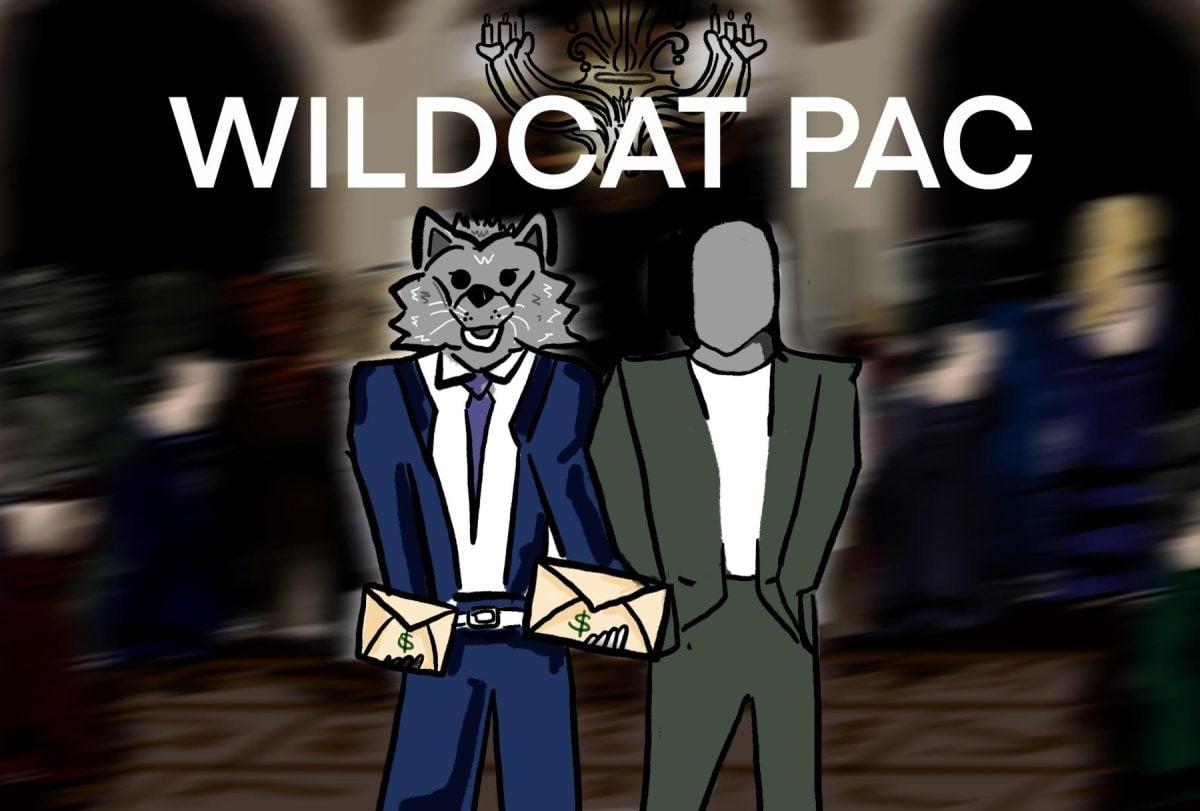CHICAGO – For months, Northwestern University and one of its most high-profile faculty members, David Protess, stood united against Cook County prosecutors who sought student documents related to the Medill Innocence Project’s investigation of convicted murderer Anthony McKinney.
But under the weight of growing criticism and national media attention, the alliance between University and professor began to show signs of strain. That strain was laid bare in October when the two sides hired separate lawyers. The University reconsidered its opposition to the records request while Protess, the project’s director, maintained that no documents should be turned over to prosecutors.
A court hearing Thursday morning showed how far the relationship has fallen: intellectual disagreements over opinion and strategy have turned into pragmatic disagreements over basic facts.
In the crowded Chicago courtroom, an attorney representing the University asked for extra time to respond to the prosecutors’ subpoena, claiming Protess had “just days ago” shared new documents with the NU lawyers handling the subpoena. For more than a year, NU had been demanding images – or copies – of three University-owned computer hard drives containing e-mail communication and other documents related to the Innocence Project’s investigation of the McKinney case. NU lawyers finally received them last Friday, University spokesman Al Cubbage said.
But in a phone interview after the hearing, Protess insisted he gave the general counsel’s office the material months ago.
“With all due respect, Al Cubbage doesn’t know what he’s talking about,” said Protess, who did not attend Thursday’s hearing. “I don’t know what’s going on. I really don’t.”
In a follow-up phone call for clarification, Cubbage acknowledged the hard drives were copied last summer, but said they were not provided to the University at that time.
“That’s just not accurate,” Cubbage said, adding Protess only agreed to have the computers imaged on the condition that they would not be given to the University.
Medill Dean John Lavine said he didn’t know which side is right.
Private e-mails, obtained by The Daily on Thursday, describe a copying process conducted in August with the knowledge of the NU General Counsel’s Office. The e-mails indicate Chicago attorney Richard O’Brien searched the hard drives for relevant documents and planned to share them with both Protess and the General Counsel’s Office.
At the time, O’Brien represented both Protess and the University. Each side is now represented by new and separate counsel. O’Brien has withdrawn from the case but is required to continue attending the hearings, adding to the unmasked absurdity of the complicated case.
The documents on the three computer drives, mostly e-mails between Protess, his students and officials at the NU Law School’s Center on Wrongful Convictions, provide details of the Innocence Project’s three-year investigation of the McKinney case.
The Innocence Project believes its investigation uncovered evidence proving McKinney was wrongfully convicted of murder in 1981. The Center on Wrongful Convictions, which represents McKinney, is using that evidence to ask a judge to reconsider McKinney’s guilt nearly 30 years after he was sentenced to life in prison.
In a dramatic move in 2009, prosecutors publicly questioned the methods of Innocence Project students and subpoenaed all of the documents related to the investigation – including student memos, the class syllabus and individual grades.
NU fought the request for more than a year, claiming the documents amounted to reporter’s notes that were not shared with anyone and thus were protected from subpoena. But in November, the University abruptly changed course and released more than 800 pages of documents to prosecutors.
Sergio Serritella, the Innocence Project’s teaching assistant, also turned over several documents, including a student memo describing an incident in which students taped a potential witness without the witness knowing – an act which is usually a crime in Illinois.
Serritella was released from the subpoena Thursday after prosecutors said he turned over all of the information they requested.
The teaching assistant, who has been with the Innocence Project for eight years, is not working with the class this quarter. NU has not given any public reason for his absence, but it is widely assumed to be related to the subpoena.
“Though I’m not aware of the reasons why I was asked to take a break from the Innocence Project Winter Quarter, I continue to lecture other Medill classes and work with students on special projects at the request of administrators and other professors,” Serritella wrote in an e-mail.
Protess declined to comment on Serritella’s absence because it is a personnel matter.
The Innocence Project director, who has been at NU for 29 years, said he believes the University should not give any more documents to prosecutors and has publicly stated that the General Counsel’s Office “sold out” his students by releasing the records in October.
Protess has steadfastly refused to turn over documents on two more computers that University lawyers also requested more than a year ago. Those computers have been described as “personal.”
“I don’t think any faculty member in this university would allow their private documents on their private computer to be shared with anyone,” he said.
Charles Sklarsky, the chief counsel for the University, said his office will need about a week to sift through the documents from the three computer images that Protess just turned over. He will decide if any of the documents should be turned over to prosecutors.
It is unclear how the widening gulf between Protess and his administration will affect the work of the Innocence Project, which has freed 11 innocent men from prison, including five from death row, and recently received credit for helping persuade the Illinois Legislature to pass a bill permanently abolishing the state’s death penalty.
The University is currently reviewing the operations of the Innocence Project and expects to complete that process soon.
It is also unclear when the focus of the case will shift from documents to the potentially-innocent man who has been in prison for 30 years.
“At some point, hopefully, we will get back to the point of looking into the guilt or innocence of Anthony McKinney,” Cubbage said.
